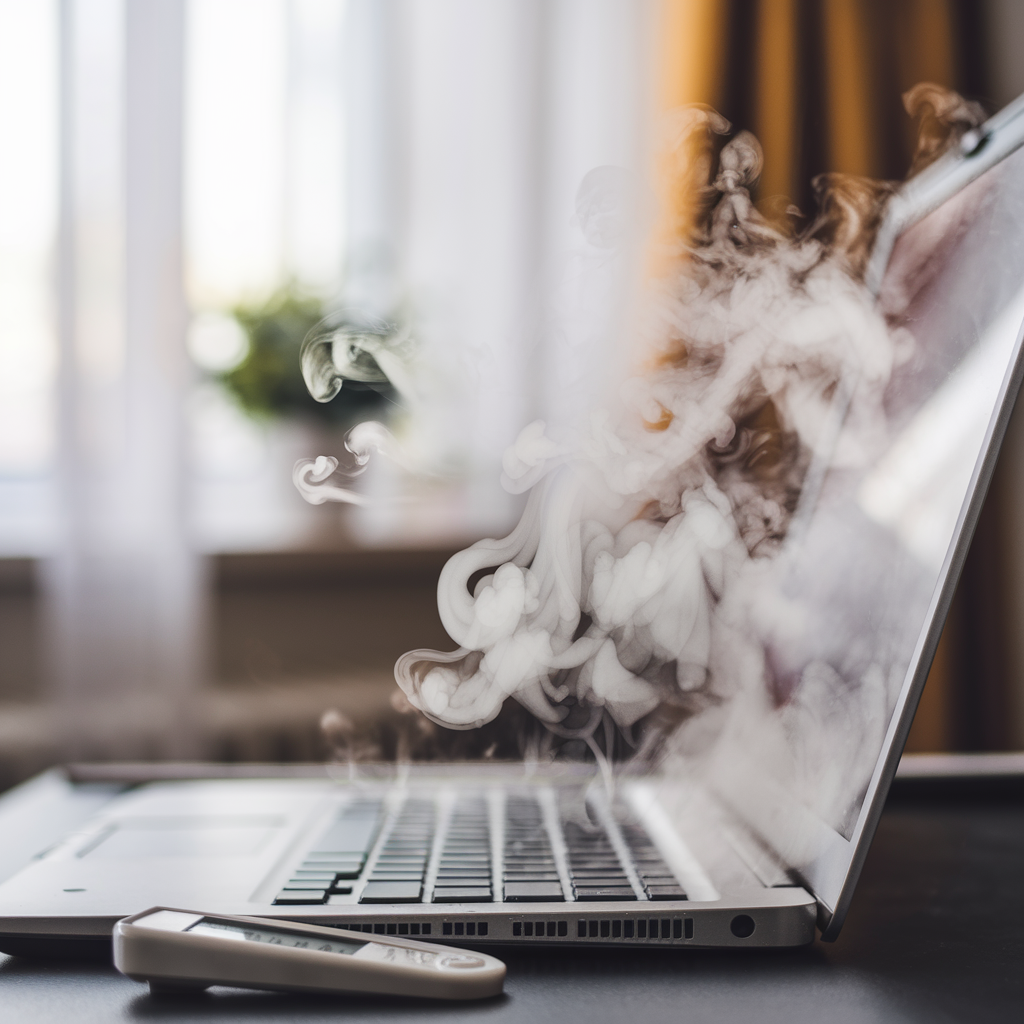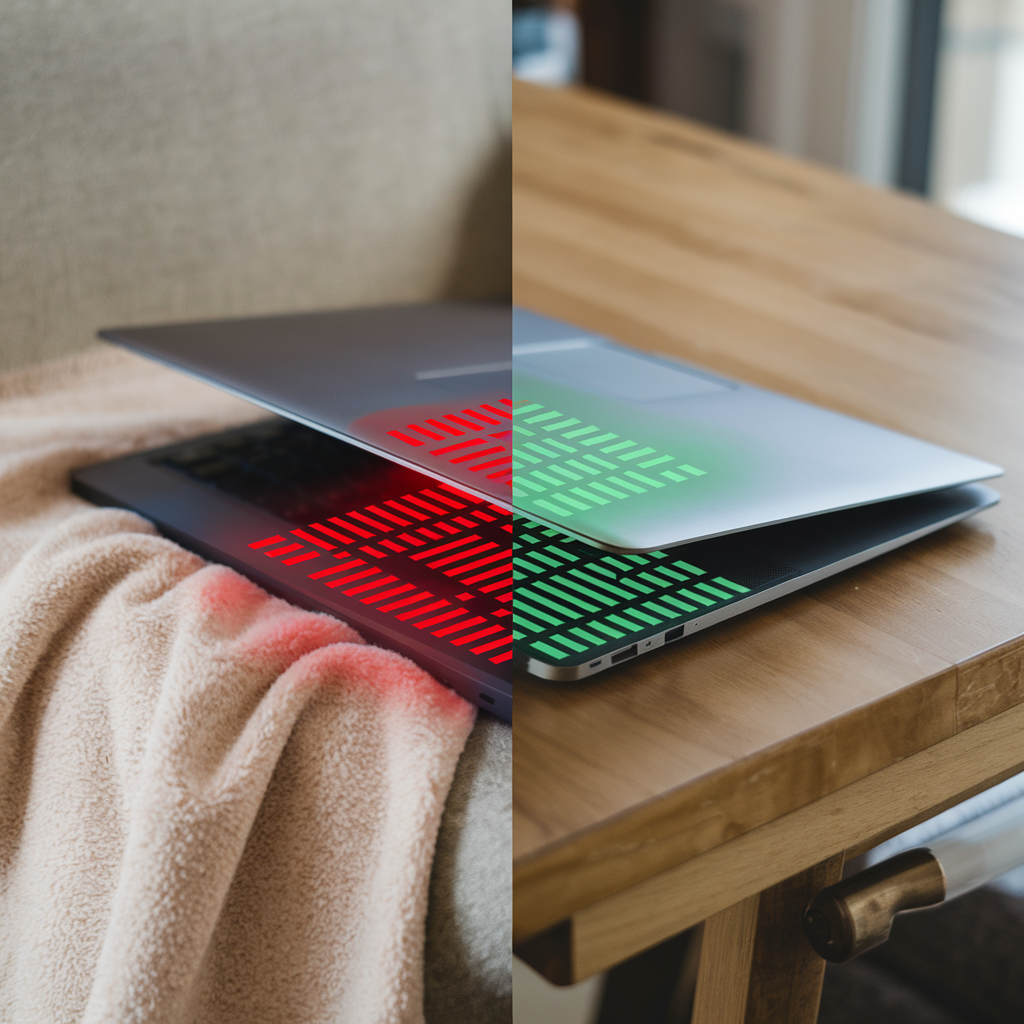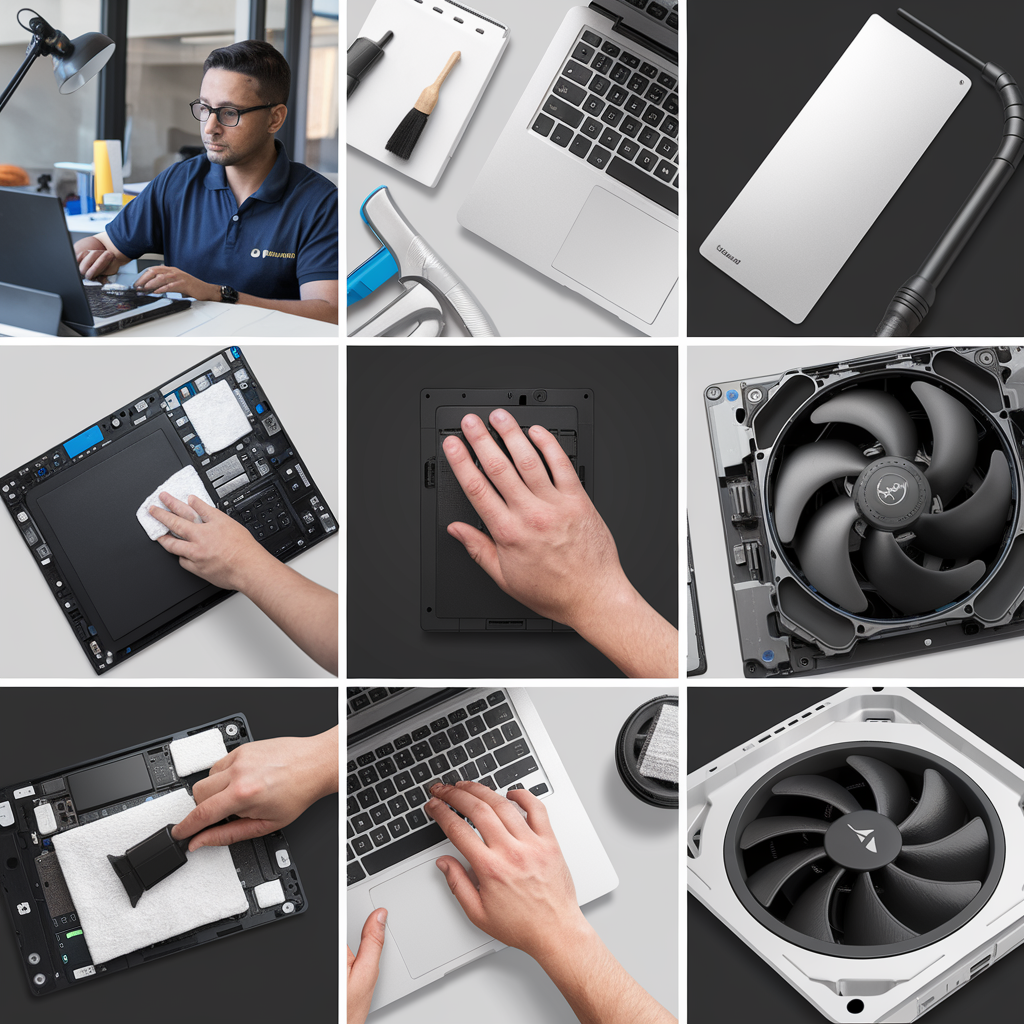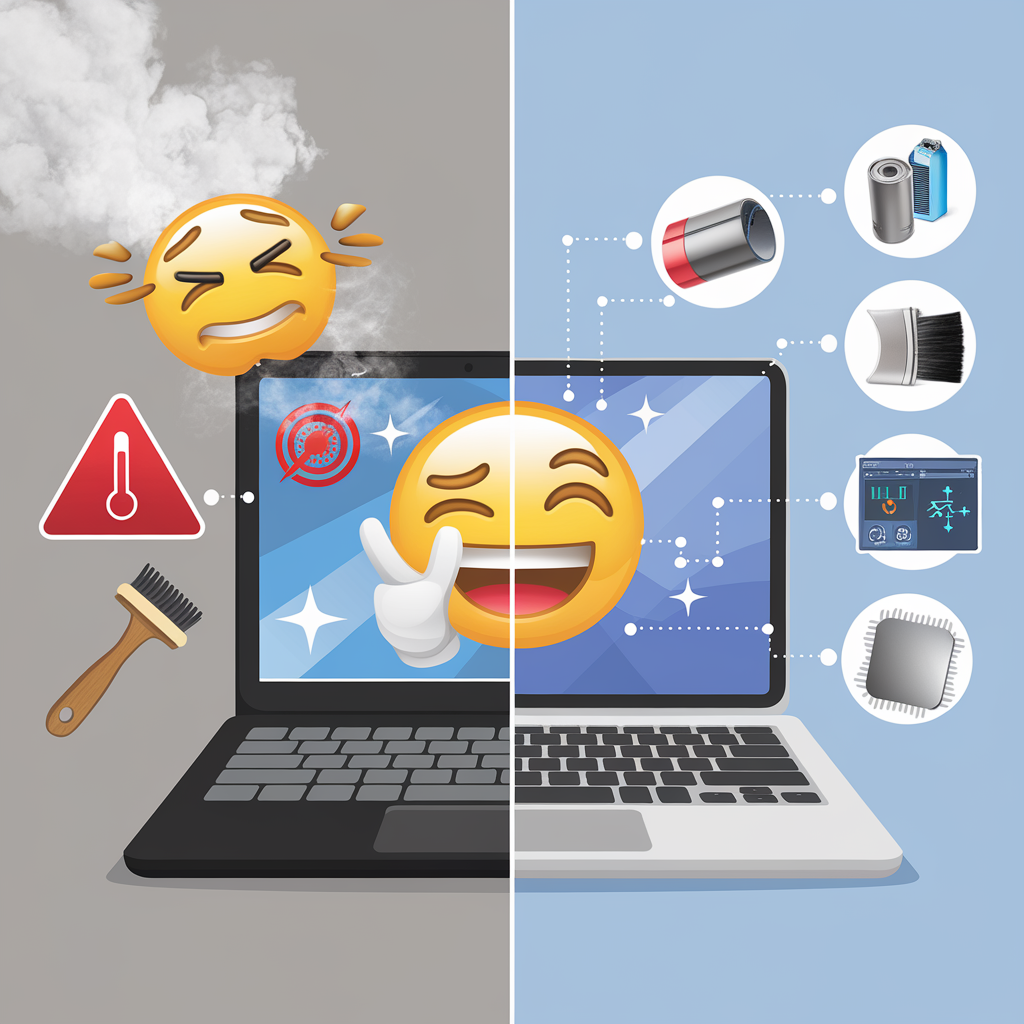Is Your Laptop Running Hot and Loud? Laptops have become indispensable tools for both personal and professional use, providing powerful computing capabilities in a compact form. However, when a laptop starts running hot and producing loud fan noises, it can be a clear indicator of underlying issues that need to be addressed to prevent damage and ensure optimal performance. In this guide, we will explore the causes of laptop overheating, the potential consequences, and effective prevention and maintenance strategies. If you’ve noticed your laptop getting uncomfortably hot or sounding like a jet engine, this comprehensive guide will offer the insights and solutions you need.
Recognizing the Signs of Laptop Overheating

Understanding Normal Operation Heat
Laptops naturally generate some heat during use. This is because electronic components, including processors, RAM, and high-capacity batteries, produce warmth as they process data and provide power to the system. Under normal conditions, this heat should be minimal, and the laptop should remain comfortable to touch. However, if your device becomes excessively hot or the fan noise becomes intrusive, it may be experiencing overheating, which can lead to performance issues or hardware failure.
The Role of Laptop Fans
Modern laptops are equipped with nearly silent fans designed to cool internal components effectively. These fans are critical in maintaining a safe operating temperature by dissipating heat generated by the processor and other hardware. When these fans work harder than usual, producing a loud “jet engine” sound, it indicates that the system is struggling to regulate its temperature, often due to blocked vents or excessive strain on the hardware.
Why Do Laptops Overheat?
Compact Design Challenges
The compact size and lightweight design of laptops are among their greatest advantages, but they also contribute to the main question Is Your Laptop Running Hot and Loud?. The components within laptops are densely packed, leading to less space for air circulation. Additionally, the proximity of these components means that heat generated by one part can easily affect others, creating a cumulative heating effect.
Moreover, the high-capacity batteries in laptops, while convenient for portability, add to the heat output. This combination of factors makes efficient heat dissipation more challenging compared to desktop computers, which have larger cases and more robust cooling solutions.
Cooling System Mechanics
Laptops rely on small fans that draw in cool air from the external environment and pass it over metal fins to exchange heat from the components. This process involves sucking in air through intake vents, circulating it over heat sinks attached to the CPU and GPU, and expelling the hot air through exhaust vents. This constant cycle is essential for preventing heat buildup and ensuring the laptop runs smoothly even under demanding workloads.
However, the effectiveness of this cooling process can be compromised by several factors, including blocked vents, dust accumulation, and environmental conditions, which we will explore in the next section.
Factors Contributing to Overheating
Environmental Factors
One of the most common causes of overheating in laptops is the accumulation of dust and debris in the cooling system. Over time, dust, hair, and even smoke particles can be drawn into the laptop along with the cool air. Smoke, particularly from cigarettes, contains tar that can coat and insulate components, further hindering efficient heat exchange. This build-up can obstruct airflow, reduce the effectiveness of the fans, and lead to overheating.
Regular cleaning and maintenance of the laptop’s vents and fan area can be the answer to the question of Is Your Laptop Running Hot and Loud?. Using compressed air to blow out dust and keeping the laptop in a clean environment are simple but effective strategies to maintain optimal airflow.
Improper Usage Habits

The surface on which a laptop is used can significantly impact its cooling efficiency. Placing a laptop on soft surfaces like thick carpets, blankets, or beds can block the vents, preventing effective airflow and causing the system to overheat. This is because soft surfaces tend to mold around the device, obstructing air intake and exhaust, thereby trapping heat.
For optimal cooling, it is best to use laptops on hard, flat surfaces such as desks, tables, or specially designed lap desks that allow for proper ventilation. These surfaces provide an unobstructed pathway for air to flow in and out of the laptop, keeping it cool even during intensive tasks.
Consequences of Overheating
Increased Fan Noise and System Strain
When laptops overheat, the internal fans must work harder to cool the system, resulting in increased noise levels. This “jet engine” noise is not only disruptive but also a clear warning sign that the laptop is struggling to manage its temperature. Over time, constant overheating can lead to more significant issues, such as reduced performance, frequent crashes, or even hardware damage.
Potential Damage to Components
Prolonged exposure to high temperatures can severely damage internal components, leading to permanent hardware failures. Laptops are designed to operate within specific temperature ranges, and consistently exceeding these limits can cause the solder to melt, warping of the motherboard, or damage to the processor and graphics card. This not only affects the performance but can also drastically shorten the lifespan of the laptop.
Software and Data Corruption
Overheating can also lead to software issues and data corruption. As temperatures rise, the integrity of data being processed can be compromised, leading to data loss or corruption. This is especially concerning for tasks involving critical data, such as software development, video editing, or gaming, where data integrity is paramount.
Addressing and Preventing Overheating
Regular Maintenance

Routine cleaning of the laptop’s vents and fans is essential for preventing dust buildup and maintaining optimal airflow. For severe cases, disassembling the laptop to thoroughly clean internal components may be necessary. This process can involve removing the back panel and using compressed air or a soft brush to clean the fan blades, vents, and heat sinks.
If you’re not comfortable disassembling your laptop, consider seeking professional assistance to ensure a thorough clean without risking damage to the components.
Software Solutions
There are several software tools available that can help monitor and manage your laptop’s temperature. These programs provide real-time temperature readings of your CPU and GPU, allowing you to adjust settings proactively. Some software solutions can automatically adjust fan speeds or power settings to help reduce heat generation.
Additionally, adjusting the power settings of your laptop to a balanced or power-saving mode can reduce the strain on the CPU and GPU, thereby lowering the overall heat output.
Proper Usage Practices
Adopting good usage habits can significantly reduce the risk of overheating. Avoid blocking vents with objects or clothing, ensure that your laptop has adequate ventilation, and try to limit the number of demanding applications running simultaneously. Regularly checking for and installing software updates can also help, as these updates often include performance improvements and bug fixes that can reduce resource usage.
Using a cooling pad can provide additional airflow and help dissipate heat more effectively, especially during intensive tasks like gaming or video editing.
Unlikely Causes and Sudden Failures
Recognizing Subtle Signs
Sometimes overheating can manifest in subtle ways, such as seemingly random blue screen errors or sudden system restarts. These issues can often be traced back to components that are overheating and temporarily failing. As the temperatures stabilize, the laptop may appear to function normally until the heat builds up again, leading to another crash.
Catastrophic Failures
In extreme cases, overheating can lead to complete hardware failure. Burnt-out motherboards or irreparable data loss are among the most severe consequences of neglecting overheating warnings. For some users, the first indication of a problem is when their laptop fails to boot or when critical data is suddenly inaccessible.
Regularly backing up important data and monitoring system health can mitigate the risks associated with catastrophic failures.
If your laptop is running hot to the touch or producing excessive noise, it’s crucial to take immediate action. Addressing overheating problems promptly can prevent significant damage and prolong the life of your device. For persistent issues or professional cleaning, consider reaching out to an expert who can provide a thorough checkup and maintenance service. Don’t hesitate to contact us at 03 9087 4389 for support and assistance.
By following the insights outlined in this guide, you can keep your laptop running smoothly, efficiently, and quietly, ensuring it remains a reliable companion for years to come.
